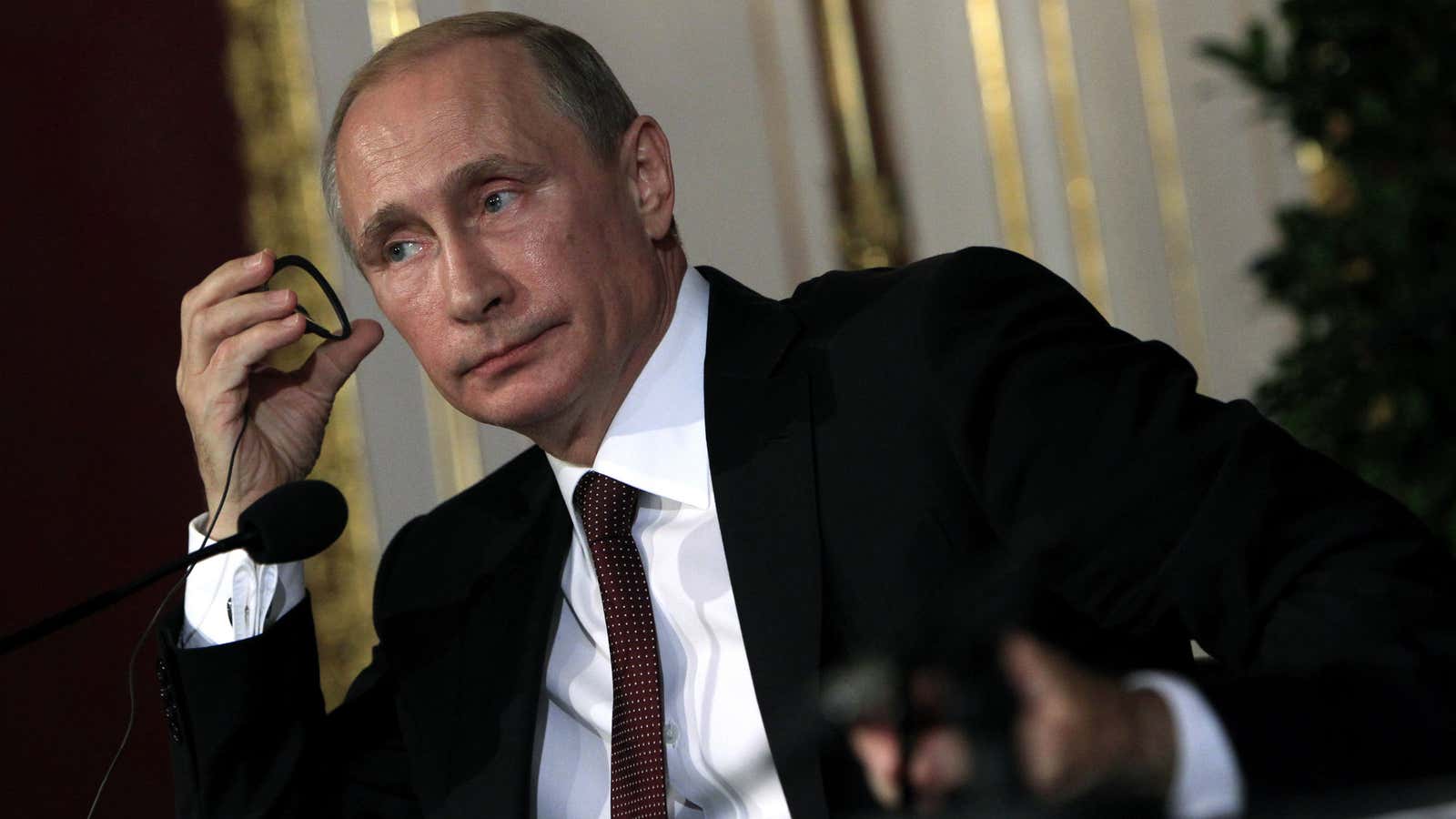Russian president Vladimir Putin is making a last-ditch appeal to stave off new sanctions and the defection of three former comrade states to a European free trade deal, but the West says he has just hours to do more.
It seems to be a lost cause, but in a statement today (in Russian), Russia’s ministry of foreign affairs pleaded with Europe to delay the planned June 27 conclusion of Association Agreements with Georgia, Moldova and Ukraine. The agreements will “harm the Russian economy,” Moscow said, asking for a postponement at least until a scheduled July 11 meeting between Russian and European Union ministers. But there seems little chance that the three republics will change their minds about signing the EU pacts.
Putin could have more luck holding off threatened new sanctions against Russian financial, defense and energy interests. On his way to join the EU meeting, US secretary of state John Kerry today delivered an ultimatum to Putin: help to calm Ukraine or face additional sanctions. He said in Paris:
It is critical for Russia to show in the next hours, literally, that they’re moving to help disarm the separatists, to encourage them to disarm, to call on them to lay down their weapons and to begin to become part of a legitimate process.
In remarks yesterday, June 25, German chancellor Angela Merkel similarly dangled the prospect of more sanctions. Jeff Mankoff of the Center for Strategic and International Studies, a think tank in Washington, D.C., told Quartz that the fact that Merkel is making such statements—despite the fierce opposition of German industry to new sanctions—underscores her determination turn up the pressure on Putin.
But Alexander Kliment, of the political risk consulting firm Eurasia Group, played down the likelihood of new sanctions anytime soon. He called the talk “a strategic leak … designed to demonstrate—not only to the Kremlin, but also to markets—that the threat of sanctions remains real.” In a note to clients, Kliment said he expects no new penalties against Russia immediately, but escalated tensions and sanctions later, as the interests of Moscow, Kyiv and the West continue to collide in Ukraine.
Matt Rojansky, director of the Kennan Institute, a research center in Washington, also said he does not expect immediate new sanctions. One reason, he told Quartz, is that the West hasn’t stated explicitly what it wants Putin to do. Nor has it organized an attack against Russia’s main pressure point, which is its reliance on the income from natural gas exports to Europe. Some 75% of Russia’s gas exports go to Europe, and gas income makes up about 15% of government revenue.
“The cost that would matter most is a sustained interruption in purchase of Russian gas,” Rojansky said, but to pull that off, western European states must be prepared with a strategy to push alternate supplies to eastern Europe, many of whose nations buy 100% of their gas from Russia. “So far, I’m not aware of any such strategy, and thus I am doubtful that a serious interruption of gas purchases is being contemplated.”
